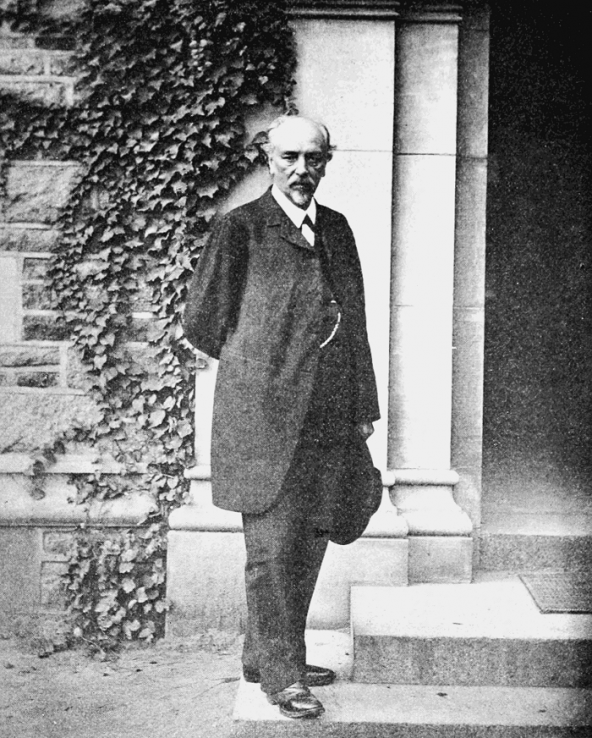Hugo Munsterberg essay
The main aims of the assignment are to explore the contribution of Hugo Munsterberg into psychology and to define his interest in other disciplines.
To begin, it is necessary to give a brief description of Munsterberg’s interest in psychology for the purpose to understand this personality and his works better. Hugo Munsterberg (1863 – 1916) was a German-American psychologist, a representative of applied psychology (psychotechnics). He studied business management issues, professional selection, vocational guidance, job training, adaptation of technology to psychological abilities of a man and other factors to increase workers’ productivity and income of entrepreneurs. In order to reproduce real life situations in the laboratory, he built special models (maps) of these situations, which were portrayed in the form of signs and symbolic field of perception and action. He also dealt with hypnosis and psychology of testimony. Thus, it can be said that Munsterberg is one of the founders of psychotechnics, while he introduced the term of “psychotechnics” into practice, and developed a strategy for the investigation of work processes in the laboratory.
Being more specific, it can be stated that Hugo Munsterberg was a supporter of one of the variants of psychophysical parallelism. Hugo Munsterberg, being a researcher and working at Harvard University, examined memory, attention, and perception. Despite the fact that Munsterberg was a brilliant experimenter and researcher, he was irresistibly attracted to the empirical side of psychology, the application of psychological knowledge in practice. Moreover, Hergenhahn (2000) said that in the period from 1905 to 1916, he did more than anyone before or after him to define and expand the field of activity of practical psychology. He was a researcher who had a very keen insight into the base of human relationships. In addition, thinking about the contribution of Munsterberg into the field of psychology, we need to note that he also dealt with forensic psychology and testimony, clinical psychology, psychology of education and evaluation of art, while he developed various methods and strategies of research and improvement of labor processes.
Observing key theories, which Hugo Munsterberg introduced into practice and developed through his life, it becomes obvious that he made a lot for the birth of industrial psychology. Munsterberg, as Moore (1921) mentioned, being recognized as a leader in experimental psychology, explored human behavior in all spheres of human activity beginning with manufacturing, education, and ending with crime detection. He printed the results of the studies both in the most popular and accessible journals (for example, “For Housewives”), and in a purely scientific journals. But wherever the works of Munsterberg were published, they enjoyed the same success.
Forensic psychology was the first application area where Munsterberg decided to work. He has written many articles on topics such as crime prevention, the use of hypnosis in the practice of questioning suspects, psychological testing to determine guilt, etc. His attempts to solve the latter problem are seen not undisputed, and his contemporaries evaluated them negatively in the end. But in spite of some mistakes, Hugo Munsterberg did much for the purpose to help legal psychology to take its rightful place not only among psychological sciences, but also in the legal field.
To illustrate Munsterberg’s attempts to find the truth, according to Heinze (2004), it can be mentioned that the scientist was extremely interested in the problem of reliability of testimony. He set the task to experimentally verify the probability of erroneous playback of the parts of the crime by witness. In Munsterberg’s experiments, subjects who acted as “witnesses” were interviewed immediately after they watched a simulation of some incident. The fact that even the testimony of “hot pursuit” was significantly differ in many details made the issue rather debatable in specific circles.
These observations were summarized in the book about the psychology of Testimony (“On the Witness Stand”), published in 1908. (In total, Munsterberg wrote more than a dozen books; and all his books were in a huge reader’s demand due to the attractiveness of the themes and style of explanation). In this work, he pointed rational way and those scientific means, which should be used to assess the evidence, while he also considered the fundamental issues of application of the methods of experimental psychology for justice.
There is no a secret that subsequently, this problem was studied in various aspects by many psychologists, as, in particular, widely presented in the extensive chapters in modern textbooks on social psychology. Unfortunately, the name of Munsterberg is rarely mentioned in them. Moreover, when in 1976 his book was republished, it became a real eye-opener for many psychologists. It turned out that many of the issues of forensic psychology, studied throughout the twentieth century, were delivered and even partly solved by Munsterberg many years ago.
Another area of Munsterberg’s interest was pedagogy, more precisely, the use of psychological patterns in school practice. His book on the subject was titled “Psychology and the Teacher”. Amazingly, even today Munsterberg’s reasoning about the psychology of educational process sound actually. But, on the other hand, it is evidenced that all the new generations of teachers have to face all the same psychological problems that cannot be resolved once for all. So, psychological knowledge is always necessary in this area.
According to Bjork (1983), it is impossible to leave without mentioning the fact that psychotherapy was also one of the areas of Munsterberg’s interest. The scientist believed that mental illnesses arise due to the inability of a man to adapt the own behavior to the environment. The therapeutic method of Munsterberg in this case was to eliminate the patient’s anxious thoughts, to rid a person of unwanted or harmful habits, to make a person forget about the negative emotions.
Do you like this essay?
Our writers can write a paper like this for you!



